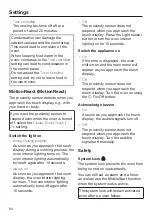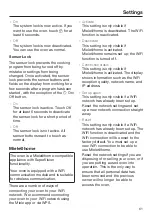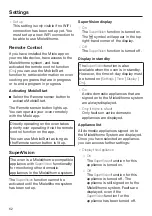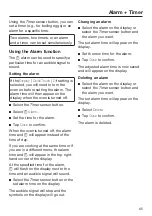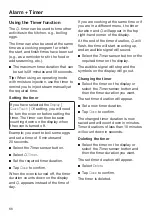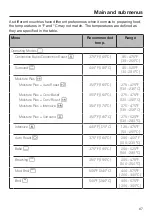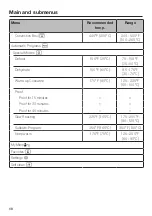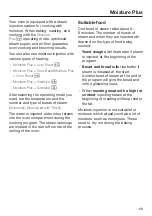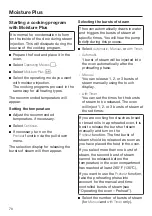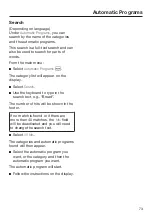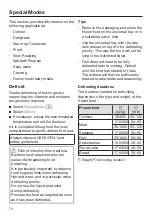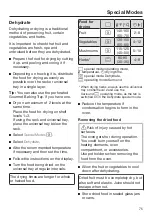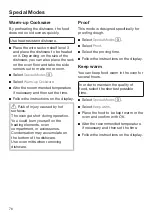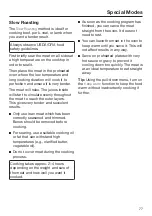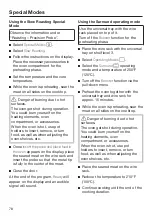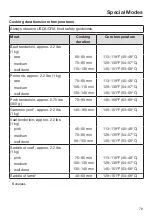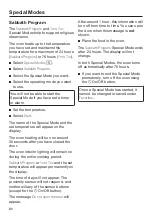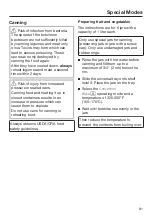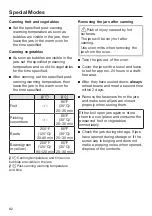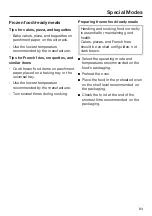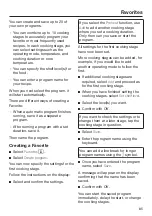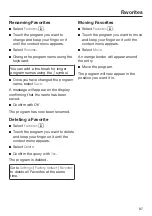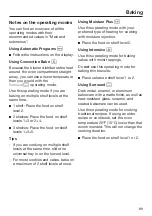
Special Modes
74
This section provides information on the
following applications:
- Defrost
- Dehydrate
- Warm-up Cookware
- Proof
- Slow Roasting
- Sabbath Program
- Keep warm
- Canning
- Frozen food/ready meals
Defrost
Gentle defrosting of frozen goods
means that the vitamins and minerals
are generally retained.
Select
Special Modes
.
Select
Defrost
.
If necessary, adjust the recommended
temperature and set the duration.
Air is circulated throughout the oven
compartment to gently defrost the food.
Always observe USDA/CFIA food
safety guidelines.
Risk of infection from bacteria.
Bacteria such as salmonella can
cause life-threatening food
poisoning.
It is particularly important to observe
food hygiene rules when defrosting
fish and meat, and in particular when
defrosting poultry.
Do not use the liquid produced
during defrosting.
Process the food as required as soon
as it has been defrosted.
Tips
- Remove the packaging and place the
frozen food on the universal tray or in
a suitable bowl or dish.
- Use the universal tray with the wire
rack placed on top of it for defrosting
poultry. This way the food will not be
lying in the defrosted liquid.
- Fish does not need to be fully
defrosted before cooking. Defrost
until the food has started to thaw.
The surface will then be sufficiently
thawed to take herbs and seasoning.
Defrosting durations
The duration needed for defrosting
depends on the type and weight of the
frozen food:
Frozen food
[oz/g]
[min]
Chicken
28/800
90–120
Meat
17.5/500 60–90
35/1000 90–120
Sausage
17.5/500 30–50
Fish
35/1000
60–90
Strawberries
10.5/300 30–40
Pound cake
17.5/500 20–30
Bread
17.5/500 30–50
Weight/
defrosting duration

